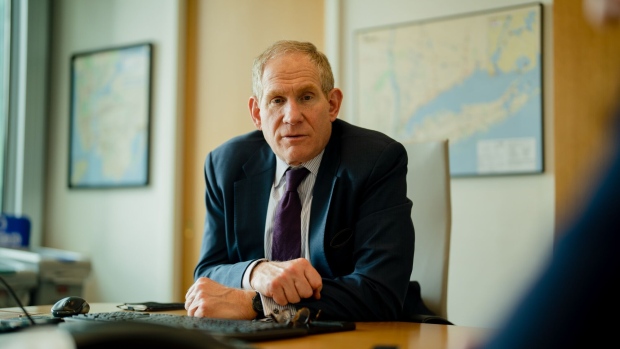Mar 29, 2023
NY MTA Chief Pleads for State Funding Ahead of Budget Deadline
, Bloomberg News

(Bloomberg) -- New York Metropolitan Transportation Authority Chief Executive Officer Janno Lieber made an 11th-hour plea for consistent funding as an April 1 deadline for legislative approval of the state budget looms.
“This is an existential moment for public transit in New York”, Lieber said at the agency’s monthly board meeting Wednesday. “I don’t want to be going back to Albany year after year to have to shake the cup again,” adding “the revenue ought to be recurring.”
The budget proposed by Governor Kathleen Hochul, a Democrat, would provide a combined $1.3 billion of new revenue for the MTA each year. The MTA faces a $600 million deficit this year that’s projected to grow to $3 billion in 2025 as federal pandemic aid runs out.
Hochul Wants Tax Boost on NYC-Area Businesses to Bolster MTA (1)
The MTA, the largest transit system in the country, anticipates receiving about $1.8 billion of payroll mobility tax revenue in 2023. Hochul has proposed to the legislature an increase in the levy to 0.5% from 0.34% that would give the transit agency an additional $800 million annually. The governor is also asking New York City to contribute an additional $500 million, which Mayor Eric Adams opposes.
“I went to Albany yesterday to talk to as many legislators as I could to emphasize the seriousness of this moment,” Lieber said. “It is essential that they move quickly to a budget deal that will fully address the MTA deficits brought on by Covid and to head off service cuts, massive fare hikes and — God forbid — layoffs and other undesirable impacts.”
New York legislators and governors historically have sparred over proposed spending right up to the budget deadline — and beyond, in some years. Republicans in the state Senate are trying to rein in budget spending.
The MTA, like many transit agencies across the US, is struggling to boost ridership back to pre-pandemic levels now that many commuters have shifted to working more from home. Weekday subway ridership is back to about 67% of pre-Covid levels. The MTA projects that it may take until 2026 for system-wide ridership to reattain even 80% of usage seen in 2019.
MTA officials have said additional funding from the state and New York City will avoid severe service reductions, layoffs and fare increases above an anticipated 5.5% hike later this year.
©2023 Bloomberg L.P.


